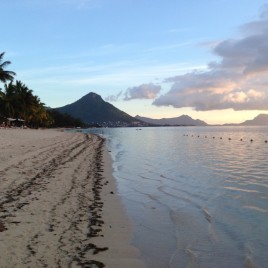Three billion-year-old minerals found under Mauritius suggest that the island was once part of a lost continent. Zircon crystals ranging from two-and-a-half to three billion years of age were found in lava brought up to the surface of Mauritius by volcanic eruptions. These minerals are part of a growing body of evidence that suggests that […]
Tag: geology
Increasing risk of coastal erosion from El Niño
Coastal areas around the pacific will be at increased risk of erosion and flooding if a projected increase in extreme El Niño and La Niña events occurs, according to a new study. Researchers found that observed coastal erosion across the Pacific varies closely with El Niño events, independent of changes in sea-level rise. The researchers […]
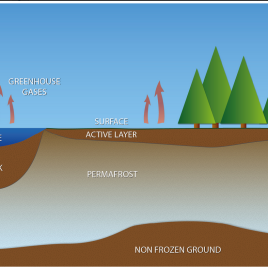
First global permafrost database launch
The first online database on global permafrost is freely available to the public, serving as an early warning system for decision-makers around the world, as well as providing standardized permafrost measurements for the first time. The database, from the Global Terrestrial Network for Permafrost, has brought together scientists from 25 countries and who have drilled over 1000 […]
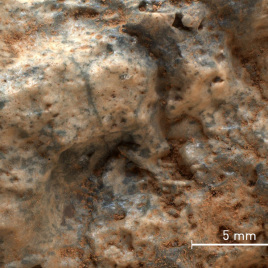
Martian crust shows similarities to the Earth’s oldest continental crust
Silica-rich rocks found in the Martian crust shows ancient Mars may have been more similar to Earth than previously thought. These rocks are similar to some of the Earth’s oldest continental crust, which have, until now, only been observed in small, localized areas on Mars. The new findings suggest the the Red Planet has experienced […]
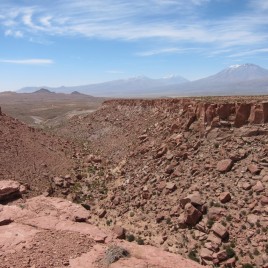
Wind-sculpted canyons
Winds could be responsible for the shape of some modern canyons on Earth and other planets such as Mars, according to a new study. Researchers analysed a set of river gorges in the Chilean Andes where some of the canyons are exposed to strong winds, and others are shielded. They found that wind explained differences […]
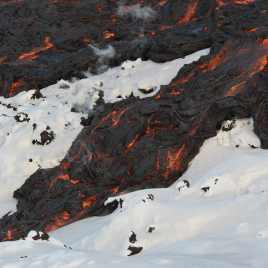
What happens when lava meets snow?
Mixing lava with snow might seem to raise the risk of flooding for nearby settlements, but in fact it appears lava does not interact much with snow. Researchers in Eastern Russia, at the Tolbachik volcano, studied how snow and lava interact to determine the effects on lava advance and snow pack melting rates. Sheets of […]
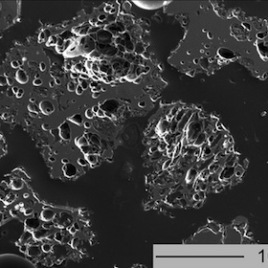
“Sam McGee’s ashes” found from Europe to Alaska
A 1,200-year-old volcanic eruption in Alaska spread ash as far away as northern Europe, a much wider range than previously thought, according to a new study. The White River Ash originates from an ancient eruption of Mount Bona-Churchill and is found across Alaska and the Yukon. The White River Ash is sometimes called “Sam McGee’s ashes” in […]
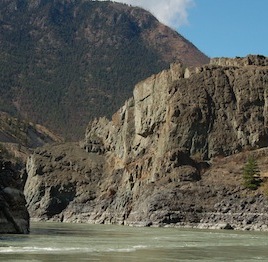
‘Upside-down’ water flows keep the Fraser Canyon steep
A new study shows water in certain stretches of the 542-kilometre Fraser Canyon in British Columbia is flowing ‘upside-down’, a discovery that helps explain why the canyon walls remain so steep. Researchers discovered that high velocity water flows down into deep pools and then upwells along the canyon walls, such that the water along the bottom flowing […]
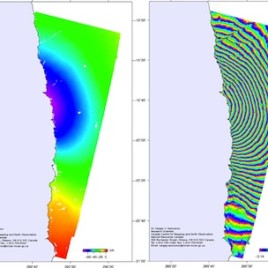
Chilean earthquake wasn’t the one scientists expected
Scientists had long expected a major earthquake in the subduction zone adjacent to northern Chile, but the magnitude 8.2 earthquake that occurred on April 1, 2014 was not it, according to a new study. Stress along the fault had been building since the last major quake in the area occurred in 1877. However, an analysis […]
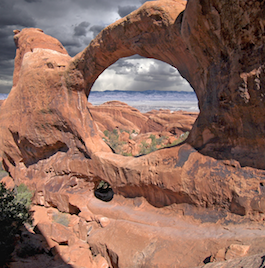
Erosion nature marvels explained
Have you ever wondered at the peculiar form of sandstones in places like the Arches National Park in the USA? In a new study, researchers explain how these stable pillar-like landforms emerge from sand through erosion alone. They conducted experiments in their lab and ran through numerical simulation to understand how the brittle sandstone could […]
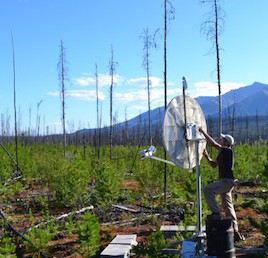
Understanding the surprising regularity of ‘slow’ earthquakes
Every 14 months, a ‘slow’ earthquake occurs beneath Vancouver island which last for 10 to 14 days; a new study helps explain why some slow quakes happen more frequently than others. Occurring along faults around the world at a depth of 25-40 km, slow earthquakes are undetectable by humans, but they vary in frequency, with […]
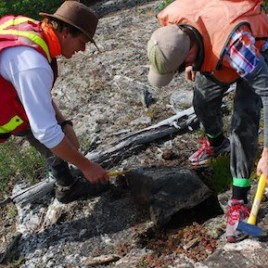
Ancient Canadian rocks shed light on first continents
A new analysis of some very old rocks from the Northwest Territories sheds light on how the very first continents formed. Rocks that make up the continental crust are less dense than those in oceanic crust, and today formed mainly in subduction zones, where oceanic crust and water get forced downward under overlapping tectonic plates. […]
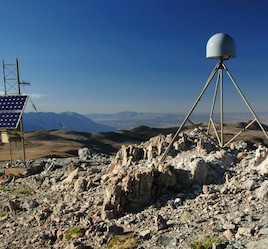
Groundwater depletion in California may move mountains
Removal of groundwater in California’s San Joaquin valley may be causing small seismic events, according to a new paper. Researchers used GPS measurements to show that land surrounding the valley is rising by between 1 and 3 mm per year, in response to draining of the underlying aquifer. The pattern is correlated with wet and […]
